Every number corresponds to the number of each song
According to the tradition begun by Homer, Virgil asked the Muse for the inspiration he needed to complete his poetic work.

After the destruction of Troy by the Greeks, Prince Aeneas (son of Anchises and the goddess Venus) manages to escape death and set sail with his son Ascanius, his father and a number of companions. The fates, they knew, had chosen a place for their future settlement, a place destined for an illustrious future. From their blood would come the founders of a city destined to become the queen of nations.

Just as Aeneas and his companions, after much wandering, were about to land in Italy, Juno managed to convince Aeolus, god of the winds, who derived his power from her, to raise a terrible storm in order to overwhelm the Trojans, whom she has hated ever since one of them, Paris, once referee of a famous beauty contest, scorned her in favour of Venus. The idea that, as fate would have it, they could lay the foundations of this all-powerful empire is unbearable for her. All the more so as she knows that Carthage, a new city under her protection that she hopes will have a great future, will bear the brunt of this rivalry.
Following the calming intervention of Neptune, who was outraged that Aeolus had exceeded his prerogatives by unleashing the waves, the Trojans who had survived the shipwreck found themselves scattered, not in Italy, but on the coast of Africa, in Libya.
They were taken in by the people of Carthage, recently founded by the Phoenicians and ruled by Queen Dido.
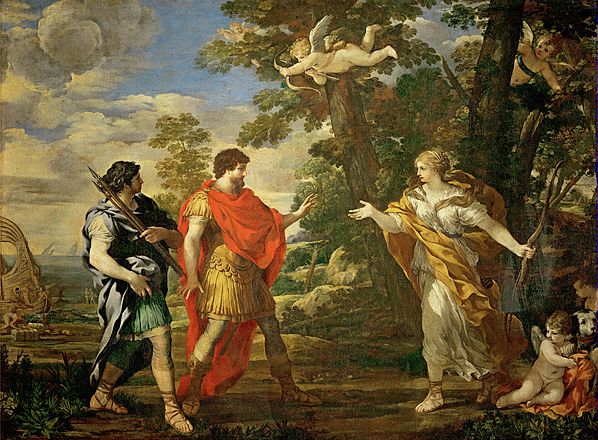
Following the intervention of Venus, who places her son Cupidon on the queen’s lap, to whom she has given the features of Ascanius (the young son of Aeneas), the queen, recently widowed, falls madly in love with the Trojan hero.
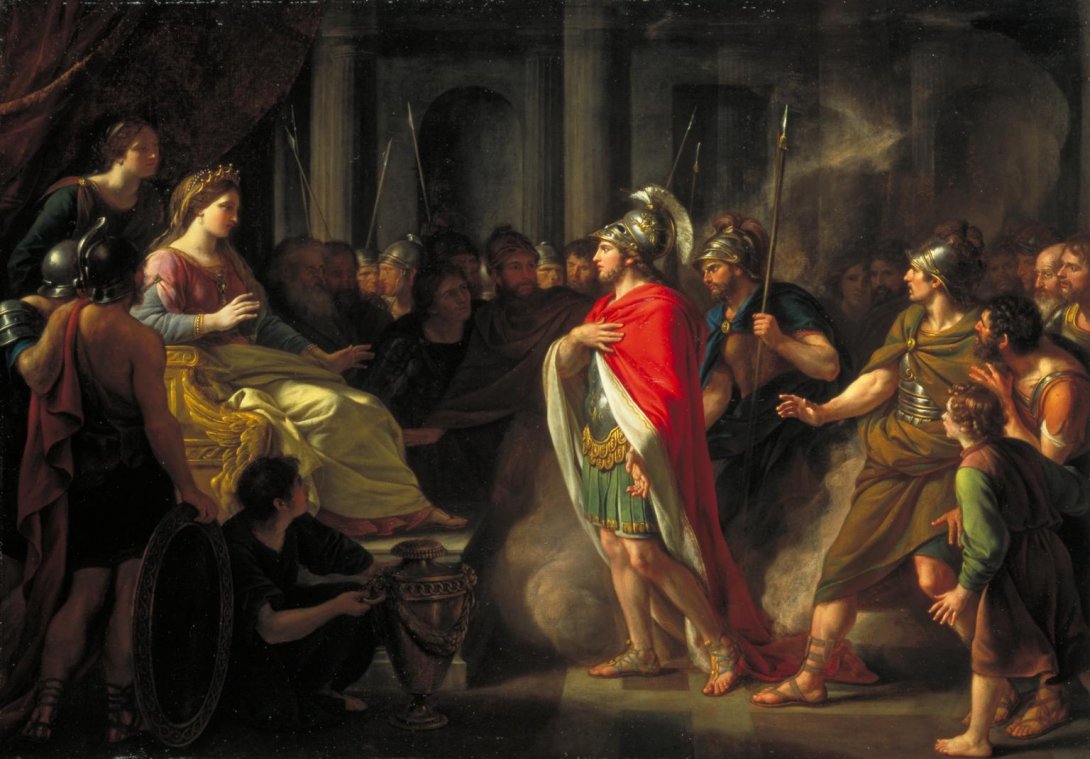
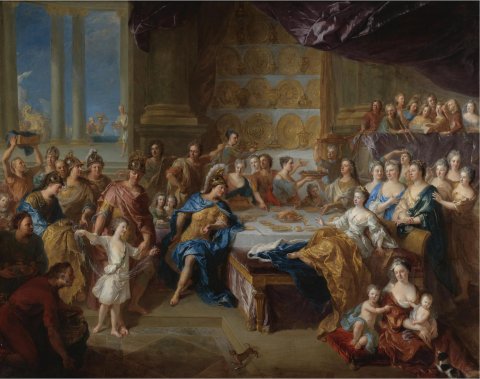
On several occasions, Dido asks Aeneas to recount the final ordeal of Troy, which he reluctantly agrees to do. He recalls the wooden horse, the illusory relief of the Trojans, the breach in the ramparts and the murderous eruption of the Greek troops…
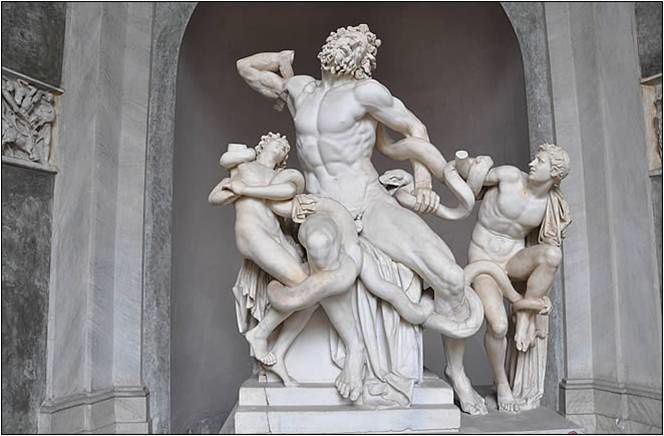

(Possible intermission)
During a hunting party organised in honour of the Trojans in the nearby forests, a storm as terrible as it was sudden forced the participants to take shelter wherever they could. Aeneas and Dido, isolated, find refuge in a cave, where their budding passion takes a carnal turn. Accomplices for once, Juno, the goddess of marriage, who wants to keep Aeneas away from Italy at all costs, and Venus, who probably sees this union as additional protection for her son, have come up with this magical shower.
Dido soon made no secret of her intentions, and word spread that the wedding was imminent.
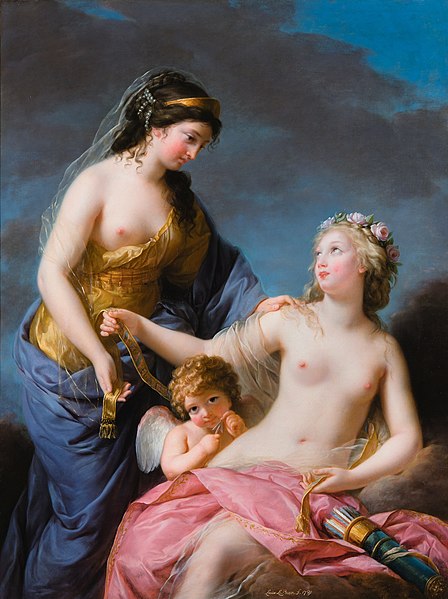
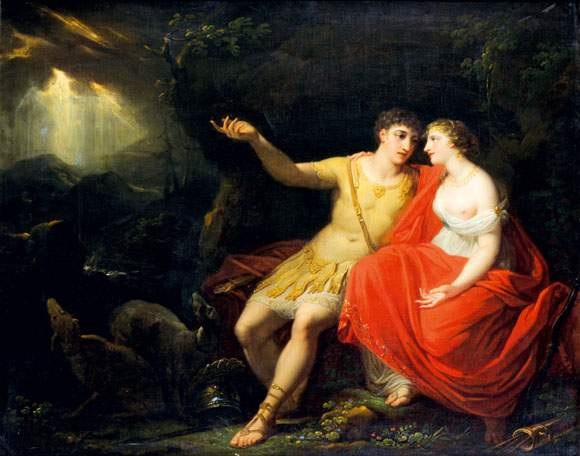
But Jupiter, angry at the extent to which the Trojan prince was forgetting the mission entrusted to him, sent his messenger Mercury, who appeared to him in a dream: it was not Carthage that the fates had chosen for his settlement, but Italy; he had to leave Dido as soon as possible.

Frightened by this warning, Aeneas decided to obey divine will.
The Queen, who was quickly made aware of the situation, could not bear the change of heart, and alternated between pleading and threatening.
To escape Dido’s wrath, Aeneas, by night, gave the signal for his departure.


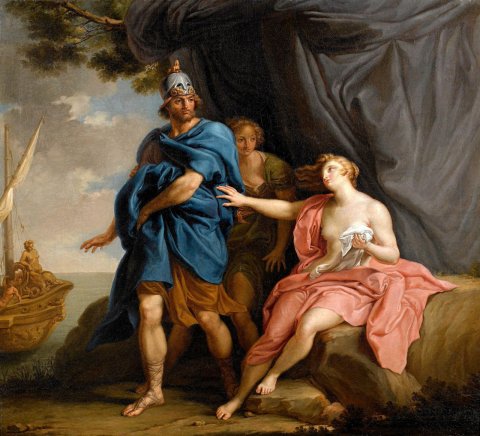
Dido, who had a pyre erected, which she claimed would lead her to forget all about the prince by burning the objects he had touched, climbed the steps. After a final mingling of expressions of passion and vengeful imprecations, she falls on Aeneas’s sword.
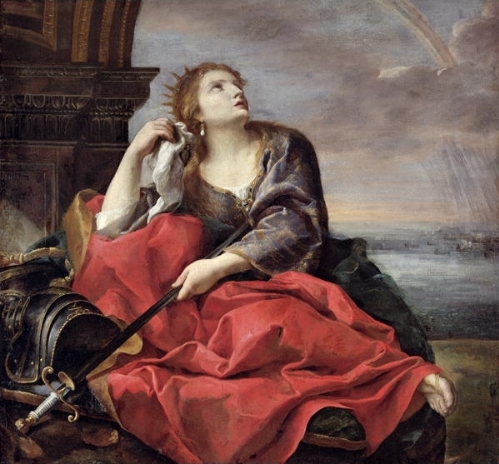
Far out on the waves, Aeneas catches sight of the flames of his pyre. And he continues on his way, torn between the remorse that assails him and the hopes that destiny dictates…